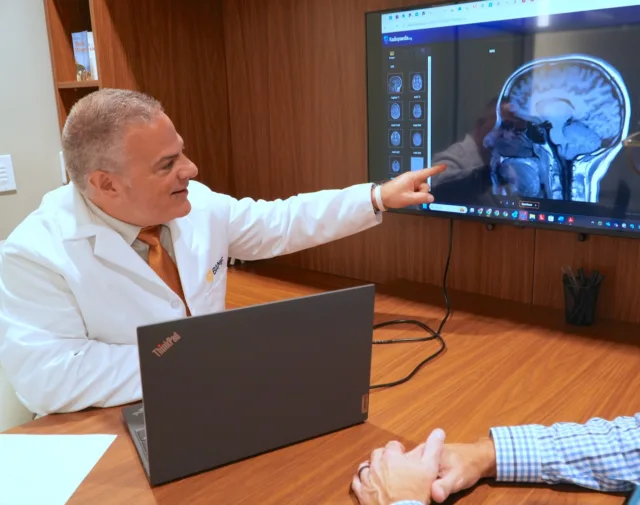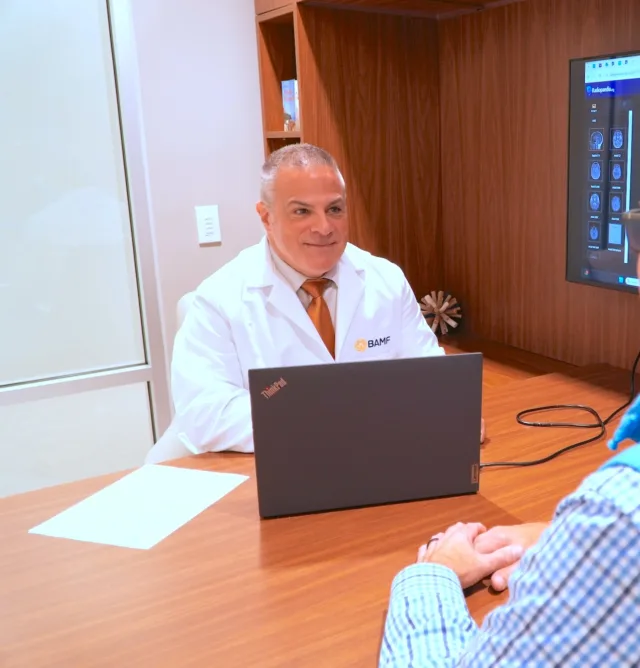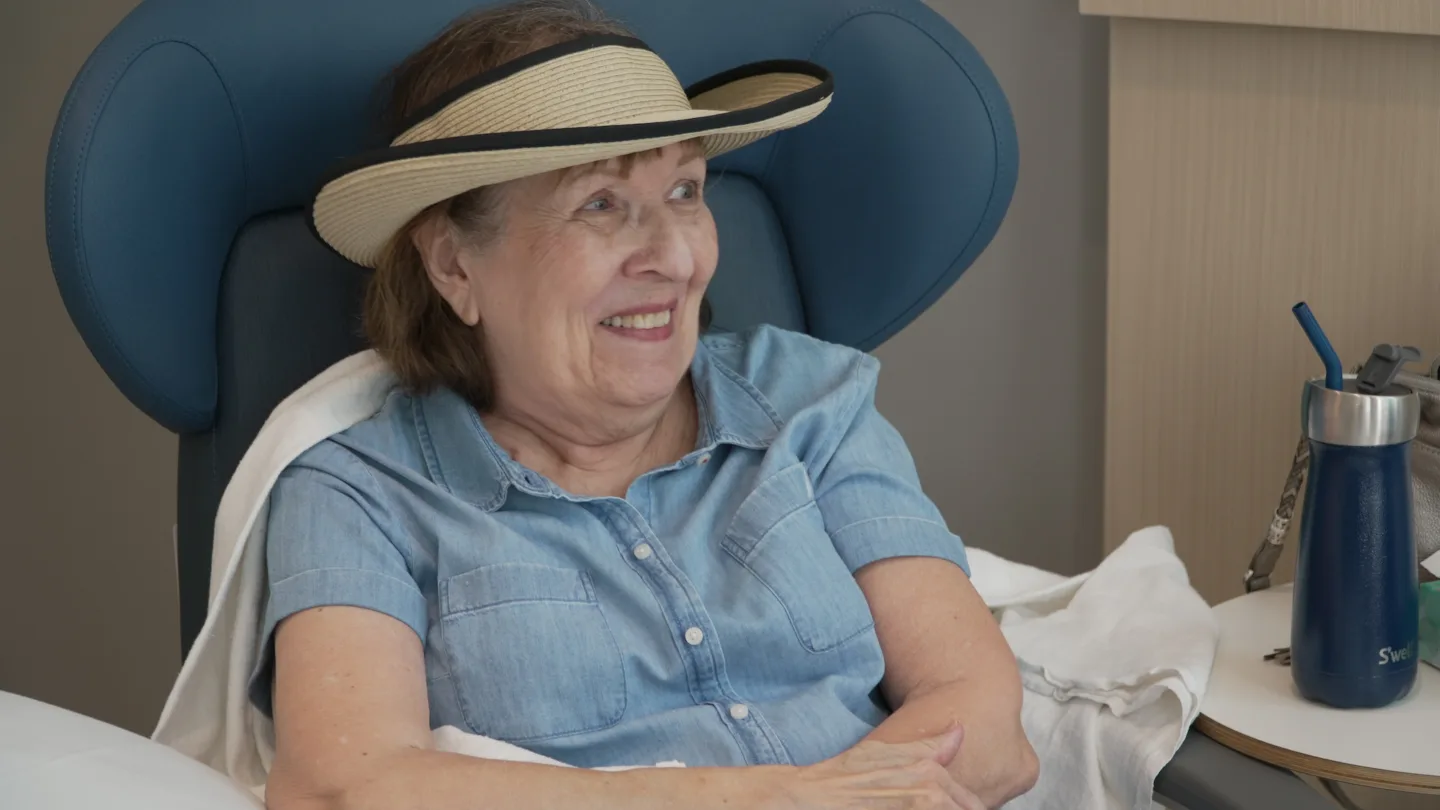
Alzheimer’s Disease is possibly one of the most feared diseases. The idea of losing who we are and forgetting the ones we love, combined with the awareness that very little can be done to stop it, is terrifying. The impact on both the person who has Alzheimer’s and those in their life is profound.
“It’s a devastating disease that currently has no cure,” said BAMF Health physician Dr. J. Polizzi. “And the number of people in the U.S. with Alzheimer’s is expected to double by 2060.”

Dr. Polizzi oversees the Alzheimer’s program at BAMF Health. He sees that fear in patients’ eyes when they come for their consultations, but what he also sees is hope. The hope that they could be a candidate for treatment to potentially slow the disease progression.
Noticing the Early Signs, and Speaking Up
“I’m just blessed that I was allowed to be one of the first patients. Now I have a shot,” shared one of Dr. Polizzi’s patients, an 81-year-old man from West Michigan.
The patient says his daughter was the one who encouraged him to come to BAMF. “She wasn’t gentle about it,” he jokes. “She got everything set up. I didn’t want to admit I needed help, but I trusted her.”
His son explained how he and his siblings started noticing small changes with their father. “We noticed he would ask a question and then 10 minutes later ask the same question again. It happened multiple times.”
For example, while at his grandson’s football game, the patient asked about the date of the next game three different times. “I’m not going to fight the fact that I’m getting forgetful,” he shared. “I need help, and I’m getting it. I’m glad I’m here.”
Qualifying for Alzheimer’s Treatment
To qualify for the FDA-approved monoclonal antibody treatment for Alzheimer’s, patients must first meet with a physician like Dr. Polizzi to discuss their symptoms, review their health history, and assess cognitive function.
“I am looking for the earliest signs of Alzheimer’s during my conversations with patients,” Dr. Polizzi said. “Symptoms this patient had, such as asking the same question multiple times during a short period of time, is very typical of someone in the early stages.”

Once an evaluation is completed, an amyloid PET scan is needed to determine if amyloid plaque is present in the brain. It’s the final step in determining if someone qualifies for treatment.
“I feel privileged to come here,” the patient said. “All you have to do is drive down here and see the facility, and you know it’s something special. It’s inspiring.”
His treatment is a once-a-month infusion delivered right here at BAMF. It is administered through an IV injection, and the appointment takes about two hours. Throughout his treatment course, he will also receive follow-up scans to determine whether progression has slowed. Patients typically continue treatment for over a year, but each case is evaluated individually.
“The infusion was wonderful,” the patient remarked. “They give you wonderful snacks! I felt great, and the next day, I went to the gym and didn’t feel a thing.”
Advocate for the Ones You Love
He said Alzheimer’s isn’t at all what he wanted for this stage of his life. He’s kept himself healthy, stays active, and loves spending time with his grandkids. He fears losing his independence and the freedom to walk out the door and go where he wants. He appreciates that his family paid attention to the signs and advocated for him.
His son said, “I know other people with memory issues, and their children are ignoring it. It’s sad because a treatment option is available. I hope people lean into these options.”
“For so many years, doctors have had to tell patients with early Alzheimer’s, ‘there’s nothing we can do for you’, Dr. Polizzi said. “Now we don’t have to. If they get here before the disease has advanced too far, they can have a better quality of life, for longer, with the ones they love.


